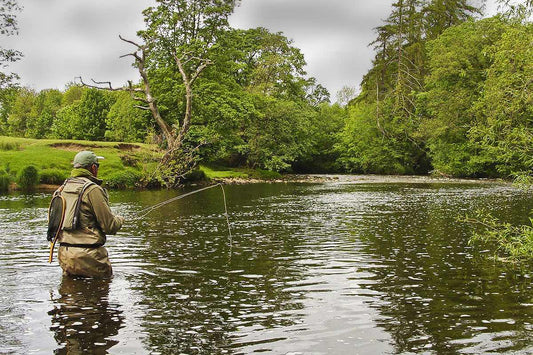Embracing Nature: A Hunter's Guide to Ethical Practices

As outdoor enthusiasts, hunters have a unique opportunity to immerse themselves in the beauty and challenge of nature. Hunting isn't just a sport; it's a deeply rooted tradition that connects us with the wilderness and teaches us respect for wildlife and their habitats. In this guide, we'll explore the principles of ethical hunting and how to ensure that every outing leaves a positive impact on the environment.
Understanding Ethical Hunting
Ethical hunting goes beyond legal regulations; it embodies a set of principles that prioritize conservation, respect for wildlife, and responsible behavior in the field. At its core, ethical hunting respects the natural balance of ecosystems and strives to maintain healthy populations of game species.

Know Your Laws and Regulations
Before heading into the field, it's crucial to familiarize yourself with local hunting laws and regulations. These rules are designed to protect wildlife populations and ensure sustainable hunting practices. Stay informed about hunting seasons, bag limits, and restricted areas to avoid unintentional harm to wildlife and legal consequences.
Respect Wildlife and Their Habitat
Respecting wildlife begins with understanding their behavior and habitat. Take the time to learn about the species you hunt, their migration patterns, and preferred habitats. By minimizing disturbance to nesting areas and feeding grounds, you contribute to the well-being of wildlife populations.
Practice Responsible Shot Placement
One of the hallmarks of ethical hunting is ensuring a clean and humane shot. Practice marksmanship and aim for vital organs to minimize suffering and ensure a swift, humane harvest. Modern equipment such as telescopic sights and rangefinders like the Hunting Rangefinder Telescope can help improve accuracy and ensure ethical shots.
Leave No Trace
As stewards of the land, hunters should leave the environment as they found it, or better. Pack out all trash, including spent cartridges and fishing gear like the Portable Fishing Line Spooler. Use biodegradable materials when possible, and avoid disturbing natural features such as vegetation and water sources.
Support Conservation Efforts
Many hunters actively contribute to wildlife conservation through licenses, permits, and donations to conservation organizations. These contributions fund habitat restoration, research, and wildlife management initiatives that benefit both game and non-game species alike.
Ethical Choices Beyond the Hunt
Ethical hunting extends beyond the act of harvesting game. It includes advocating for sustainable practices, respecting private property rights, and promoting ethical behavior among fellow hunters. By setting a positive example and educating others, you contribute to a culture of conservation and respect for nature.
---
Hunting is a privilege that comes with responsibilities. By embracing ethical hunting practices, we not only uphold traditions but also ensure the preservation of wildlife and their habitats for future generations. Let's continue to explore, respect, and protect the natural world as responsible stewards of the land.









